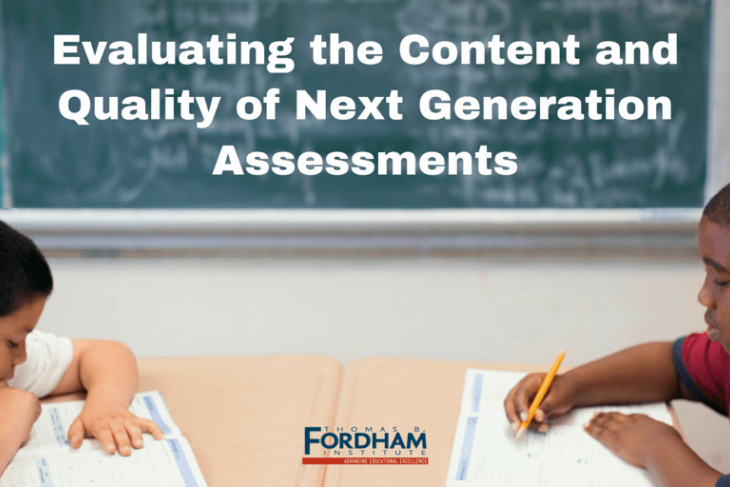In 2015, nearly 13 million schoolchildren across the country took a brand new “next generation” assessment: PARCC, Smarter Balanced, or ACT Aspire. These tests promised parents, teachers, and community members a better understanding of their students’ preparedness for college and career.
But do they assess rigorous and high-quality content? Are they capable of giving stakeholders a more honest understanding of student performance? And, now that they’re in use, what next steps should policymakers concerned about college and career readiness take?
Over the last year, we at Fordham have worked to deliver these answers by commissioning practitioners, content and assessment experts to review secure test items provided by the four test vendors for grades five and eight. Our resulting study, Evaluating the Content and Quality of Next Generation Assessments, reviews three multi-state tests (ACT Aspire, PARCC, and Smarter Balanced) and the best-in-class of previous state assessments, Massachusetts’ state exam (MCAS). The evaluation assesses these tests’ fidelity to the CCSSO’s Criteria for High-Quality Assessments, the foundation of which is adherence to college and career-readiness standards—including, of course, the Common Core.




